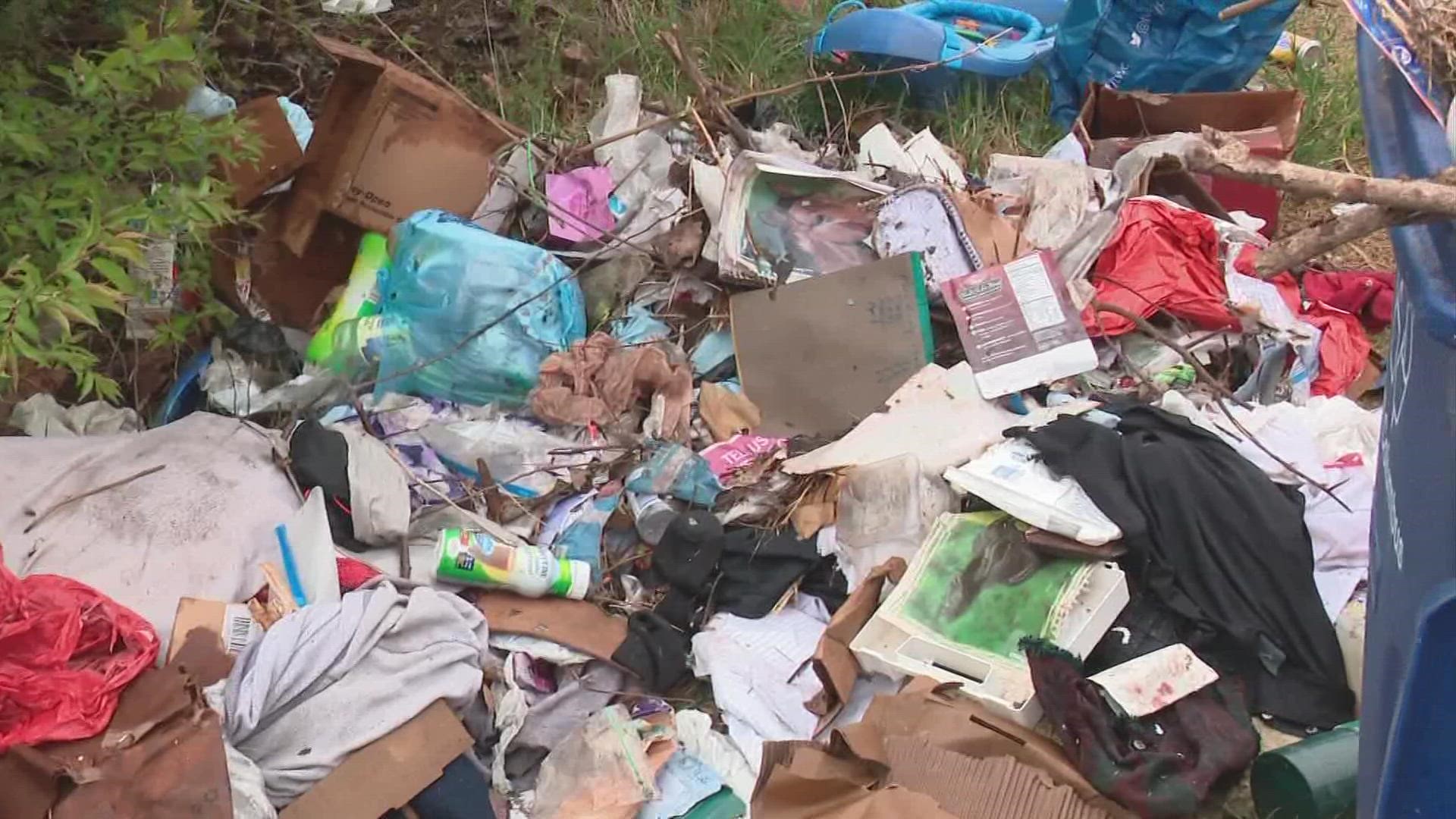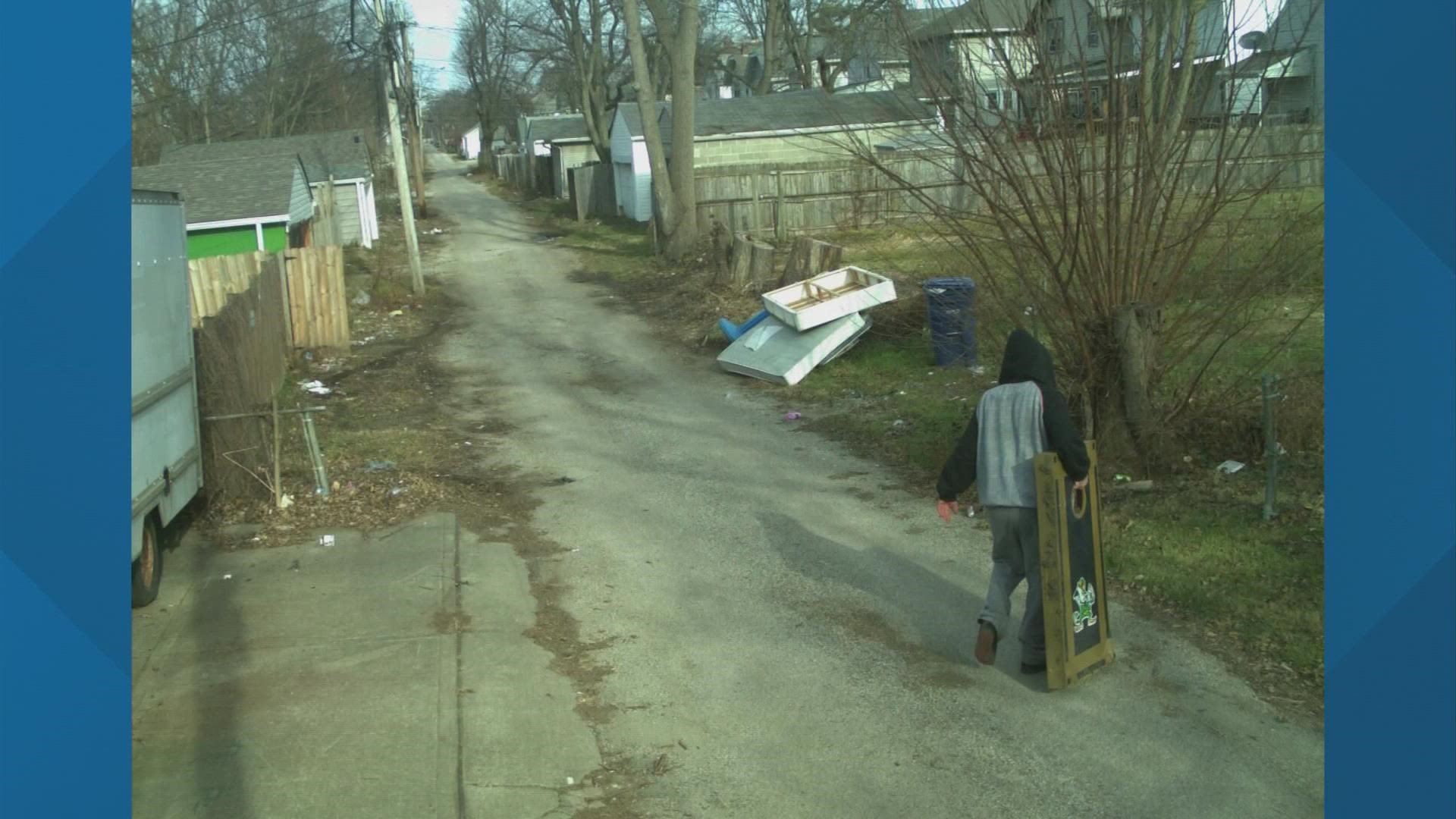FRANKLIN COUNTY, Ohio — Illegal dumping is everywhere in Franklin County. Just ask Detective Robert Conkel with the Franklin County Sheriff’s Office.
“A lot of its construction and demolition debris we get from companies that have trailers and they just unload it and then they drive off,” Conkel said while standing next to an illegal dump sight off Eakin Road in southwest Columbus.
“We find a lot of concrete two by fours all the stuff from demolition from inside the house and stuff,” he told CrimeTracker 10’s Angela An.
Conkel is part of an environmental crimes task force (ECTF) funded by SWACO, the Solid Waste Authority of Central Ohio. Since 2016, the ECTF dealt with more than 6,000 cases.
“In a typical year about 90% of the cases are littering and open dumping crimes, although hazardous waste, open burning, and water pollution crimes are also reported,” said Hanna Greer-Brown, SWACO’s communication manager.
The challenge is prosecuting illegal dumpers because they are often difficult to catch in the act. Det. Conkel said many of his cases come in through tips from www.itsacrime.org, a website set up by the task force where people can leave information including license plates and photos.
“If it's a regular activity, we'll set up cameras and try to see if we can catch who's doing it and then charge them from there,” Conkel added.
The City of Columbus Refuse Collection also uses a data-driven approach to place cameras in identified hot spots. In March, a Columbus man pleaded guilty in a case that involved illegal dumping in an alley in west Franklinton.
As part of his suspended jail sentence, a judge gave John Kenney 24 hours of community service which includes litter clean up.
Statistics from the Columbus Department of Public Service show 6,143 tons of illegally dumped trash picked up in 2019. This was the first full year of Columbus Mayor Andrew Ginther’s Clean Neighborhood’s initiative to combat illegal dumping.
In 2020, even more trash was collected. A total of 6,540 tons, despite the start of the pandemic. Numbers fell slightly in 2021 to 5,298 tons of illegal material collected.
Det. Conkel says beyond the numbers, each dumpsite is a hazard and danger to families and children.
“It gets rodents and stuff,” Det. Conkel said. “It causes diseases, gets into waterways and it’s just a huge problem for animals and people.”
Conkel also said he wishes more people took pride in their community because illegal dumping and littering is not a victimless crime.
“It costs the county millions of dollars to clean up. That’s millions that could be spent buying new snowplows for the county, but that money has to be spent picking it up."
Click here to see the Refuse Collection Illegal Dumping Collection Dashboard.


